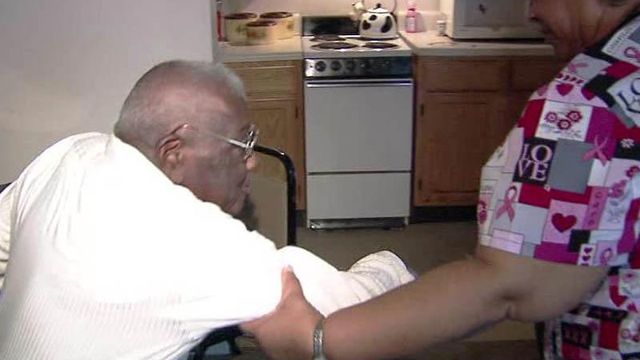Loss of services could force thousands from NC group homes
A long-running battle between North Carolina and the federal Medicaid program could cost 12,000 people their homes next year.
Posted — UpdatedThe state for years applied different standards for people to qualify for personal care services, depending on whether they lived at home or in an adult care facility. The services help disabled people with everyday activities, such as eating, bathing and getting dressed.
Federal regulators repeatedly demanded that the state apply the same standard for everyone. Last December, in response to a lawsuit by an advocacy group for the disabled, a federal judge ruled the state was violating the Americans with Disabilities Act and ordered a common standard to qualify for personal care services.
Choosing the lower standard used in adult care facilities could have cost North Carolina hundreds of millions of dollars, Department of Health and Human Services Secretary Al Delia said Tuesday.
"It would have made a lot of people who were in their homes living with their families eligible. It would have been tens of thousands of people and would have exploded the cost for the state," Delia said.
So, the state chose the tougher standard that had been applied to people receiving personal care services at home.
On Jan. 1, thousands of disabled people in group or adult care homes will no longer qualify for the services through Medicaid because the state considers them functional enough to live without them.
Lou Wilson, a lobbyist for the North Carolina Association of Long Term Care Facilities, said the loss of Medicaid funding could force many group homes to close.
"The personal care dollars pay for all the staff that meets the daily needs of the people like baths, (other) needs, supervision, helping them with their medication, those kinds of things," Wilson said. "There will be over 12,000 people in North Carolina who will have no place to live."
Some people forced to leave group homes will have to go back to families that might not be able to care for them, said Julia Adams, assistant director of government relations for advocacy group ARC of North Carolina.
"These problems we're going to see with the personal care services as they ripple through our group homes will lead to more institutionalizations in the future, we believe," Adams said.
State lawmakers set aside $39 million to help affected people through next June, and Delia said a blue ribbon task force will meet this fall to look for long-term solutions that could include more state money.
"Many states provide these kinds of services at whatever level they set with state dollars rather than with Medicaid dollars, which includes federal funds," he said. "It's a matter of how much is the state willing and able to pay."
• Credits
Copyright 2024 by Capitol Broadcasting Company. All rights reserved. This material may not be published, broadcast, rewritten or redistributed.





